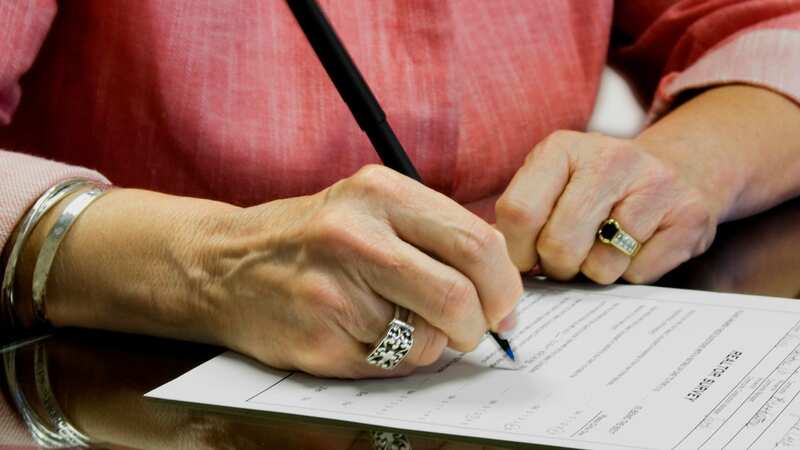Thousands of Brits due share of £45million in refunds after being overcharged

Hundreds of thousands of Brits are are still owed £45million in refunds after being overcharged legal fees.
In 2018, a redress scheme was set up by the Government after it found people have been overcharged by the Office of the Public Guardian (OPG) when setting up a "power of attorney". This a legal document which allows you to appoint someone else to make decisions or act on your behalf.
A power of attorney is usually put in place if you're no longer able to or if you no longer want to make your own decisions. You can get power of attorney to cover your property and financial affairs or your health and welfare - you can have one for both.
In total, the OPG was found to have overcharged 1.7million applicants by £69million between 2013 and 2017. This was because the group's running costs fell but the fees it charged did not drop to reflect this - from April 2017, the fee was dropped from £110 to £82.
The refund scheme allows Brits to claim back up to £54 per attorney plus 0.5% interest on top. However you could be due up to £108 if you had an attorney for both your financial and health matters. People in England and Wales eligible for refunds made power of attorney registrations between April 1 2013 and March 31 2017.
 Rishi Sunak must suspend Dominic Raab during bullying inquiry says union chief
Rishi Sunak must suspend Dominic Raab during bullying inquiry says union chief
The Times revealed that only 330,000 applicants made a claim for a refund which totalled around £16.9million to be paid out. This means potentially 1.37million people could still be owed some cash.
Although according to the OPG, the number of people affected is likely to be lower because some will have filed more than one application. It is also worth noting, that people can still make a refund claim even if the person who the attorney was for has died.
How can I make a claim?
Previously, claims for refunds could be submitted online however in January 2021 the Government shut this way of claiming down. The only way to put in a claim for a refund now is by writing to the OPG by post.
According to MoneySavingExpert.com, to do this, you will not need to supply the OPG with the power of attorney document itself, but you will need:
- The donor's name, address and date of birth
- Their UK bank account number and sort code
- The name of one of the attorneys on the power of attorney
If the donor has died, you'll need to send a copy of the donor's death certificate and will, or a grant of representation such as a grant of probate or letter of administration, along with your contact details. Once you have all this information gathered, you can send it to the following address:
POA Refunds Team, 7th Floor, Office of the Public Guardian, PO Box 16185, Birmingham, B2 2WH.
With the online refund process, the OPG said your claim would take up to 12 weeks to process - the OPG confirmed to the Mirror that the claims process time was still the same, but currently an average claims process takes around 5-10 working days
How much can I claim back?
According to our research, how much you can claim depends on the year you took out the attorney - you’ll get half the refund if you paid a reduced fee.
- Applied between April 2013 and September 2013 - £54 per attorney
- Applied between October 2013 and March 2014 - £34 per attorney
- Applied between April 2014 and March 2015 - £37 per attorney
- Applied between April 2015 and March 2016 - £38 per attorney
- Applied between April 2016 and March 2017 - £45 per attorney
An Office of the Public Guardian spokesman told the Mirror: “This refund scheme is still open and we have already paid out over £16million in compensation.”
Read more similar news:
Comments:
comments powered by Disqus

































